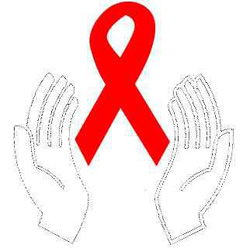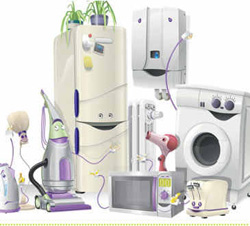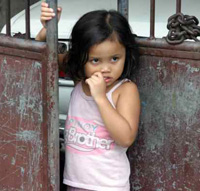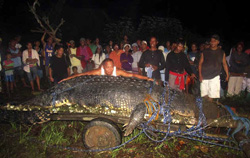Archive for September, 2011
Increase in HIV infections in the Philippines alarming
Thursday, September 29th, 2011 Human immunodeficiency virus (HIV) infections recorded in the Philippines have broken from a 20-year low to a rapidly spreading disease, particularly in Cebu, Davao and Manila, a new report by the Joint United Nations Program on HIV/AIDS (UNAIDS) revealed.
Human immunodeficiency virus (HIV) infections recorded in the Philippines have broken from a 20-year low to a rapidly spreading disease, particularly in Cebu, Davao and Manila, a new report by the Joint United Nations Program on HIV/AIDS (UNAIDS) revealed.
In the Philippines, six new cases of HIV-infected patients are recorded everyday.
New HIV infections in the Philippines are doubling every year due to inadequate prevention efforts and poor knowledge of risky behaviour among vulnerable groups, a top U.N. official said in an interview.
Philippines Human Rights Watch places alone in Angeles City the figure at between 30,000 to 55,000 people infected with HIV. It states 7 out of every 10 girls who work in bars in Fields ave, Angeles, are infected with HIV.
Facebook News Feed Changes
Friday, September 23rd, 2011 Many Facebook users are unhappy on Wednesday after discovering the social media giant made significant changes to the look of news feeds.
Many Facebook users are unhappy on Wednesday after discovering the social media giant made significant changes to the look of news feeds.
Google+ open for everyone
Friday, September 23rd, 2011 From now on, everyone can register at the Facebook rival Google+. Previously, the Internet service had been available by invitation only. All that are interested users must do now is to go to Google’s Web site google.com/+ and to sign up. With some additional functions the social network is promoting for members.
From now on, everyone can register at the Facebook rival Google+. Previously, the Internet service had been available by invitation only. All that are interested users must do now is to go to Google’s Web site google.com/+ and to sign up. With some additional functions the social network is promoting for members.
Operate gadgets & appliances in the Philippines
Monday, September 19th, 2011 There are obviously 2 – 3 different power systems in the Philippines, depending on the island. All the electricity networks work with around 230 -240 V as in many western countries but with 60 Hz (50 Hz in many other countries), which will cause some appliances brought from other countries do not work properly. E-tools, electric motors, washing machines etc. may run too fast and can overheat and burn easily. Most electrical devices one should better buy in the Philippines than to bring it for a lot of money to the Philippines.
There are obviously 2 – 3 different power systems in the Philippines, depending on the island. All the electricity networks work with around 230 -240 V as in many western countries but with 60 Hz (50 Hz in many other countries), which will cause some appliances brought from other countries do not work properly. E-tools, electric motors, washing machines etc. may run too fast and can overheat and burn easily. Most electrical devices one should better buy in the Philippines than to bring it for a lot of money to the Philippines.
Philippine Culture: Hiya
Saturday, September 10th, 2011 The core value of Philippine society is “hiya” (Tagalog, in Bisaya: ulaw), which controls the social and individual behavior of Filipinos. Hiya is a feeling of failure and triggers from deep inside shame and disgrace, when Filipinos realize that they have violated the rules of conduct and expectations of society. This since ancient times instilled sense has made most of Filipinos shy and reticent people. So most Filipinos are afraid to talk frankly about a problem, concern or request. Hiya is also a means of coercion, educating with force the already small children in certain social norms of behavior. It characterizes the relationships between the Filipinos and decisively expressed in many small, but typical Filipino behavior. It is unseemly for example, to express outspoken criticism of a person or group, and they always express it indirectly with soothing phrases.
The core value of Philippine society is “hiya” (Tagalog, in Bisaya: ulaw), which controls the social and individual behavior of Filipinos. Hiya is a feeling of failure and triggers from deep inside shame and disgrace, when Filipinos realize that they have violated the rules of conduct and expectations of society. This since ancient times instilled sense has made most of Filipinos shy and reticent people. So most Filipinos are afraid to talk frankly about a problem, concern or request. Hiya is also a means of coercion, educating with force the already small children in certain social norms of behavior. It characterizes the relationships between the Filipinos and decisively expressed in many small, but typical Filipino behavior. It is unseemly for example, to express outspoken criticism of a person or group, and they always express it indirectly with soothing phrases.
Villagers capture world’s largest crocodile
Thursday, September 8th, 2011 It weighs one ton and is believed responsible for eating at least one fisherman, but this monster crocodile has finally been caught by 100 very cautious men. Measuring 21ft from snout to tail, the massive creature is the largest crocodile captured alive in recent years.
It weighs one ton and is believed responsible for eating at least one fisherman, but this monster crocodile has finally been caught by 100 very cautious men. Measuring 21ft from snout to tail, the massive creature is the largest crocodile captured alive in recent years.
The beast was caught, after a three-week hunt, in a creek in the Philippines by villagers who had lived in fear of it for more than 20 years. Its nearest rival in the monster stakes is Cassius, an Australian salt-water crocodile which measures a ‘mere’ 18ft – and which is still on the loose in the Northern Territory.
Nominative, Accusative, and Dative: When to Use Them
Thursday, September 1st, 2011 Modern High German distinguishes between four cases — nominative, accusative, dative, and genitive — and three grammatical genders — feminine, masculine, and neuter. In this article should given help for German language learners regarding to the grammatical cases Nominative, Accusative and Dative.
Modern High German distinguishes between four cases — nominative, accusative, dative, and genitive — and three grammatical genders — feminine, masculine, and neuter. In this article should given help for German language learners regarding to the grammatical cases Nominative, Accusative and Dative.

